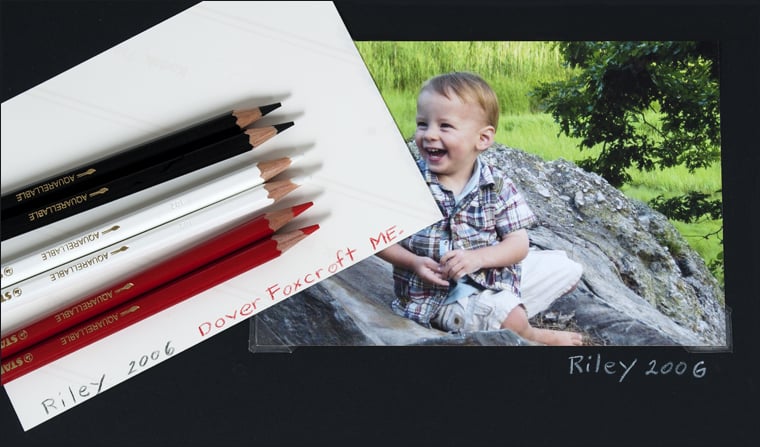Since the original publication of this blog post we have found a better solution (soft graphite!) for writing on the backs of plastic or resin coated photos. Please go to our blog post Tips for Labeling Photos and Snapshots for more up-to-date and in-depth info on this topic.

There are many wrong ways of marking materials in your collection. These can permanently damage old photographs and other items in your family archive.

Collections experts advise you to never use permanent markers, non-archival pens, highlighters, and such when marking your materials. To label your collectibles, use an archival pencil or marker. Standard pencils and Stabilo Pencils are both excellent options, depending on the surface you are writing on.

Pen ink often contains solvents and other stuff that can bleed, smear, or contaminate the image you’re writing on, and/or transfer to whatever else is in contact with it. Ink is also usually “non-reversible,” which conservators frown upon. This is almost never the case when using a pencil.
Whenever possible, do not write on your photographs. If you must, then a regular pencil can be used on fiber based photos. Remember to use a light touch and keep to the edges.
Many modern photos are printed on a plastic or resin-coated paper that cannot be written on with a normal pencil. We recommend a soft graphite pencil for RC papers.

Archival Pens contain inks that are chemically inert and safe. You can use archival pens to label Index Cards and the outside of Acid-Free Envelopes, but don’t use them directly on photographs and artifacts.
Stabilo Pencils

Stabilo Pencils let you write clearly on glass, metal, or paper surfaces. They are water soluble and can usually be wiped off of smooth surfaces with a damp cloth, but they can not be erased from paper.
Contact Us
If you have any additional questions on preserving your collections, or would you like more information on any of our museum-quality archival storage and presentation materials, please contact us here at Archival Methods. We’re always there to help with any archiving, storage, or presentation questions you may have.
Updated: 12/30/2024
